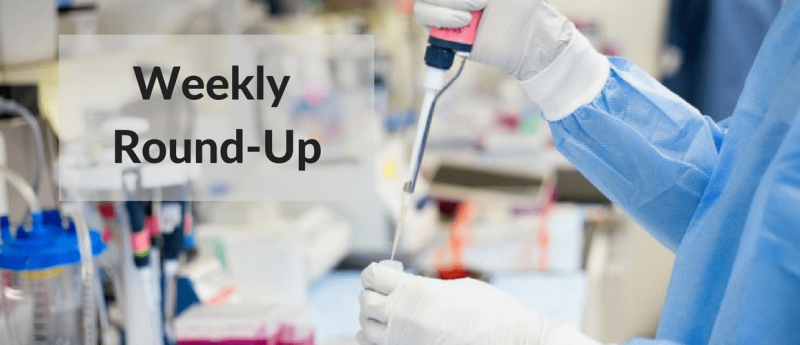Cell therapy weekly: Novo Nordisk continues to investigate stem cell therapies for chronic diseases and Kite expands manufacturing capability

This week: FDA accepts IND for gene-edited sickle cell therapy and severe hemophilia A patients targeted in phase I/II study.
The news highlights:
Novo Nordisk renews focus on stem cell therapies
FDA accepts IND for gene-edited cell therapy to treat sickle cell disease
Kite expands manufacturing capabilities with new European site
BioMarin tackles severe hemophilia A patients in new phase I/II study
Novo Nordisk renews focus on stem cell therapies
Novo Nordisk (Denmark) has announced that it will be increasing its interest into stem cell therapies and expanding the indications of interest from type 1 diabetes to other chronic diseases. Through a collaboration with the University of California San Francisco (CA, USA), researchers will work together to derive cell lines that they hope will become a new quality standard for the production of cell-based therapies.
“Finding a cure for diabetes is part of Novo Nordisk’s vision and recent progress in our stem cell research and the access to robust and high-quality cell lines raises hopes for people with type 1 diabetes. Our collaboration with UCSF is also expected to accelerate current and future partnerships to develop stem cell-based therapies for treatment of other serious chronic diseases”, said Mads Krogsgaard Thomsen, executive vice president and chief science officer of Novo Nordisk.
FDA accepts IND for gene-edited cell therapy to treat sickle cell disease
Collaborators Bioverativ Inc. (MA, USA) and Sangamo Therapeutics, Inc. (CA, USA) have had their Investigational New Drug application for BIVV003, a gene-edited cell therapy for the treatment of sickle cell disease, accept by the FDA. BIVV003 utilizes zinc finger nucleases to modify a section of the BCL11A gene, suppressing sickle hemoglobin production, and was developed as part of a collaboration to develop gene-edited cell therapies for both sickle cell disease and beta thalassemia.
“This acceptance marks the second IND for this gene-editing approach in less than a year, and the first for a gene-edited therapy in sickle cell disease,” said Ken Huttner, Vice President, Clinical Development at Bioverativ. “We look forward to advancing the program into clinical trials.”
“Sickle cell disease is a lifelong blood disorder with serious, painful and debilitating complications, and patients deserve new, more effective treatment options,” said Ed Conner,Chief Medical Officer at Sangamo. “We believe the precision, efficiency and specificity of zinc finger nuclease technology differentiate BIVV003 from other genomic therapies in development.”
Kite expands manufacturing capabilities with new European site
Kite (CA, USA), a Gilead company, has leased a new 117,000 square-foot site in Hoofddorp (the Netherlands) to manufacture and deliver its cell therapies to patients in Europe, include Yescarta. In addition, Kite has also purchased a new building in Santa Monica (CA, USA) to be used for research and development, and has leased a facility in Gaithersburg (MD, USA)
“We are pleased to be leading a new frontier of cancer innovation that is bringing hope for people living with cancer,” commented John F. Milligan, Gilead’s President and Chief Executive Officer. “This new European manufacturing facility will enable personalized cell therapies to be manufactured in closer geographic proximity to the patients who will receive them, potentially shortening the turnaround time for people who urgently need care.”
BioMarin tackles severe hemophilia A patients in new phase I/II study
BioMarin Pharmaceutical Inc. (CA, USA) is targeting patients with severe hemophilia A with pre-existing AAV5 antibodies in a phase I/II study evaluating an investigational gene therapy, valoctocogene roxaparvovec. The study, in which the first patient has been dosed, will treat two titer cohorts with a 6e13 vg/kg dose. Valoctocogene roxaparvovec is also being evaluated in patients without pre-existing AAV5 antibodies.
“Administration of valoctocogene roxaparvovec to this first patient seropositive for the AAV5 capsid is an important next step in our plan to expand the number and types of severe hemophilia A patients who may benefit from gene therapy and have antibodies to the vector,” said Hank Fuchs, President, Worldwide Research and Development at BioMarin.
“The goal with this study is to determine if patients that already have antibodies to AAV5 can be effectively treated with valoctocogene roxaparvovec. Our objective is to develop a therapy with the potential to eliminate the need for chronic treatment in severe hemophilia A across all patient sub-groups.”
For more weekly cell therapy news, read previous editions of the cell therapy weekly.